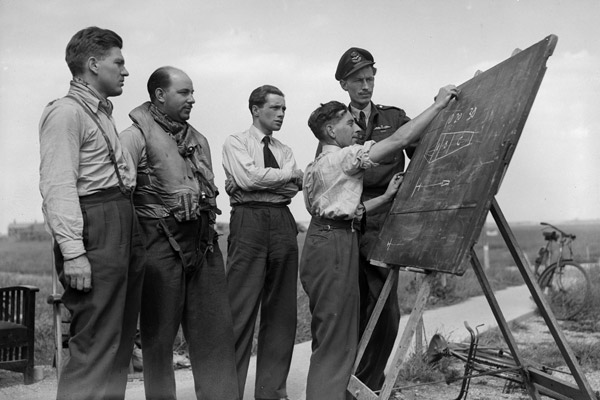The Anfa Hotel in Casablanca has seen better days. Seventy years ago it was the grandest hotel in Morocco, good enough to house Winston Churchill and Franklin D. Roosevelt when they met in January 1943 to devise a strategy that would win the second world war. The views remain as fine and the bedrooms as expansive, but today the carpets are unmistakably worn and the bathrooms are beginning to peel. In its own small way, the hotel illustrates the central theme of The Rise and Fall of the Great Powers, Professor Paul Kennedy’s epochal history now more than 20 years old, that a dearth of economic resources progressively enfeebles the mightiest of institutions.
In his latest work, Kennedy sets himself the apparently easier task of showing how the Casablanca agenda — safeguarding the supply of Britain’s food and munitions in preparation for an invasion of Europe with the ultimate aim of securing the unconditional surrender of Germany, accompanied by an equally ambitious plan to cross the Pacific and defeat Japan — was successfully executed in the teeth of an experienced, skilful enemy. In little more than 30 months, Kennedy marvels, ‘What was ordained at Casablanca had really come about.’
Engineers of Victory is divided into five lengthy chapters, each examining a major aspect of the war — the battle of the Atlantic, the bombing strategy, the war in the desert, the Normandy landings, and the Pacific campaign — but treating them as problems to be solved. Kennedy’s heroes are neither generals nor airmen nor even the cryptographers of Bletchley Park (he takes a notably dim view of intelligence), but boffins and engineers, like Percy Hobart, designer of tanks with skirts for swimming and flails for mine-clearing, generically known as ‘the Funnies’, or the sort of creative scientists recruited by the Department of Weapons Development, who earned the nickname ‘Wheezers and Dodgers’. In their eyes, and Kennedy’s, the bloodiest conflict appeared as a series of knotted challenges that needed to be unpicked by intelligent inventiveness rather than brute force.
Thus in the Atlantic where the sinking of more than 1,100 Allied vessels in 1942 by wolf packs of U-boats threatened to starve the Allies into defeat, he lifts away the different elements that made up the nightmare — lack of destroyers to guard the convoys, but also of knowledge of how wolf packs hunted, of armaments to attack them, of communication among the convoys’ defenders. Like a game of scissors-paper-stone, air forces were the nemesis of those underwater who in turn delivered doom to what sailed on the surface. Consequently the place where these terrors came together and U-boats could operate freely was the central Atlantic beyond the range of normally equipped aircraft. ‘Closing the air gap did not happen because some great person decreed it,’ Kennedy points out. ‘There was the team of chiefly Canadian air engineers who in early 1943 pulled one bomb bay from a B-24 Liberator, replaced it with extra fuel tanks, and at last created an aircraft that could reach the transatlantic gap.’ But there was no single exit from the nightmare. The range of solutions encompassed everything from mass-produced escort carriers to miniature aircraft-borne radars; then, as the U-boats were restricted from the air, better tactics switched destroyers from a universal role as hunters, guards and rescuers of torpedoed crews to specialist tasks, with improved weapons including the ‘hedgehog’ depth-charge firer contributed by the wheezers and dodgers. The turn in fortunes was dramatic: in 1944 just over 100 ships were torpedoed while 258 U-boats were destroyed.
Kennedy aims to show that victory was the outcome of what Churchill called ‘the proper application of overwhelming force’, and he brings to the task a seductively vigorous writing style, and a forensic skill in uncovering both problems and solutions that would not disgrace P.D. James. Yet his examples do not add up to a convincing case.
Despite the unmistakable impact of British ingenuity, the micro-reality of war is that given time everyone, not just boffins, gets better at fighting. Kennedy mentions the heroic Captain John Walker who won four DSOs in HMS Starling for the improvements he evolved in hunting U-boats, but equally deserving would have been the unsung Captain Lionel Wigram who devised battle schools in 1942 using live fire to give soldiers better preparation for combat. A similar refinement of small-scale skills was achieved by the Germans and Japanese. The critical difference was to be found at the macro-scale. Ultimately the Axis aimed to achieve worldwide domination with access to just $18 billion of productive power. With the more modest goal of defeating just two countries, the Allies generated $62 billion of productive power. That pays for a lot of wheezes and dodges.






Comments